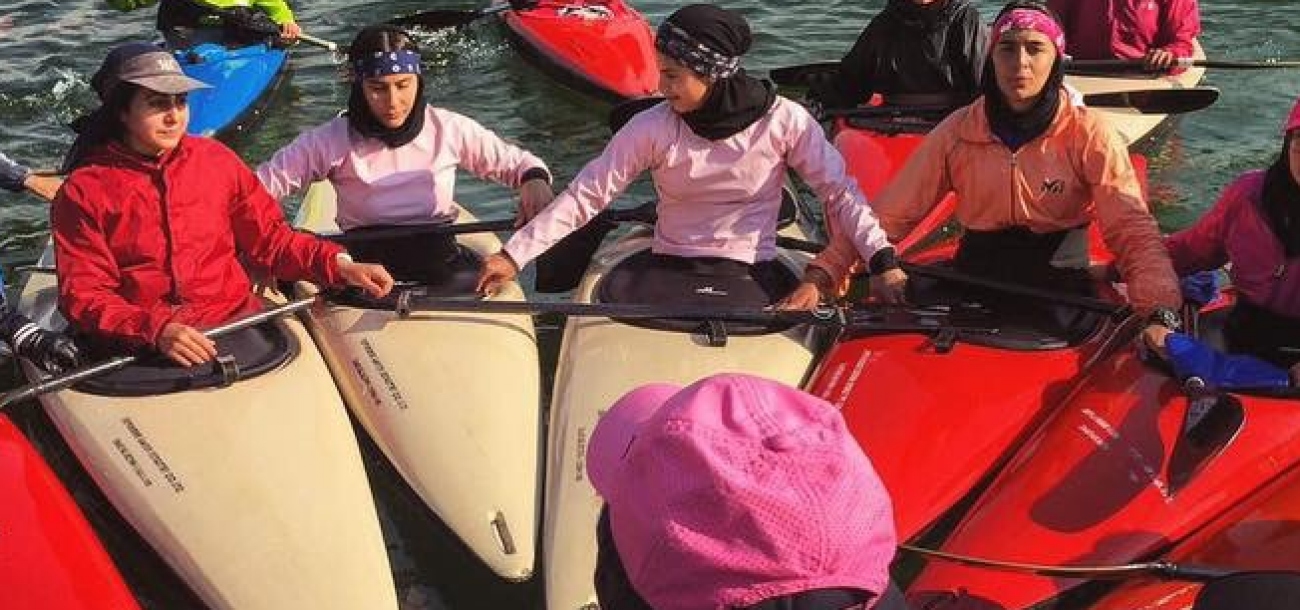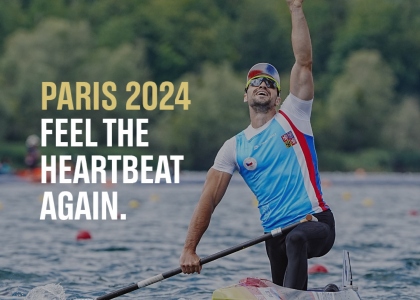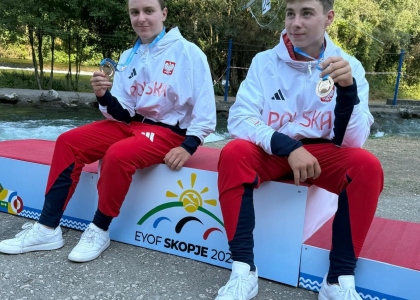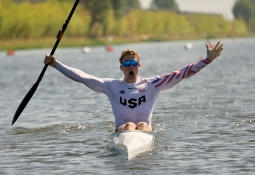
She heard it so often that it became more of a shock when she didn’t.
Katayoon Ashraf knew what she wanted to do, and she was pretty confident she knew how to do it. But when you’re a female, and your passion is paddling a canoe in a male-dominated society like Iran, it is never going to be as easy as it should be.
“Women aren’t strong enough to go in the river alone,” was one comment she heard often.
Other times it was open hostility. She travelled the country with her daughter and they paddled in rivers where the locals had never seen a woman paddling before, and a lot of them did not like it.
But she persevered. She had fallen in love with canoeing, and wanted more Iranian women to experience the exhilaration of rushing down rivers and navigating through rough and tumble obstacle courses.
Ashraf love of water began as a lifesaver, and then she was introduced to canoe polo. It was a natural fit, and before long she was selected in Iran’s first women’s canoe polo team at the Asian Championships in Tehran.
Canoe polo also taught her how to eskimo roll, so the natural next step was to take these skills to the river.
Her first challenge was overcoming the doubts that had been drilled into her by people who thought slalom was no place for women. She even started questioning if she could paddle in a river without the help of men, and felt petrified she would be criticized by “men who made heroes of themselves”.
“When I passed the hard part of a river, the thing I heard most of the time was that I should stop, instead of being offered advice to help me improve,” she said.
But those doubts didn’t last long. Katayoon Ashraf was not the first to be mesmerised by the beauty of a canoe in the wild.
“The experience of paddling in nature was so wonderful,” Ashraf said.
“I entered the first slalom national women’s team and from that time I started to know myself better. I came out of my cocoon, made new friends, and had new experiences.
“I got to travel to other countries and meet successful women in this field , and I had a chance to talk about how we could change and make our life better.”
ON HER OWN
Ashraf points out there were many men who were very supportive of her, and let her join their paddling groups. While this was a big step forward, Ashraf said she still felt stress in case she made a mistake and brought trouble to the team.
So Ashraf decided to head out on her own.
“I decided to collect more information to make myself stronger,” she said.
“I travelled to many places sometime paddling in raft with my teenage daughter who was always with me in her green kayak .
Day after day other girls trusted us and the number of people like us became more and more. We got stronger by helping each other in the masculine society of paddling and we passed all those hard days.”
Katayoon Ashraf was rewarded for her perseverance by being appointed coach of the women’s national team. But then many of the real challenges began.
Canoe sprint and canoe polo were already established in Iran, but canoe slalom was new territory. Once again Ashraf and her determined band of female paddlers were facing challenges from those who believed they knew better.
“At first nobody care about me,” she said.
“Sometimes when we were getting close to the race some men used to start fighting with us to not to give us the chance of going to the race. Their reason for this behaviour was the result of past women in eight years before, and they were thinking that we don’t deserve to be a part of the Asian Games.
“I fought for my team , and we got the first slalom Asian Games medal in the history of Iran’s slalom in Incheon.
“After then I got more respect, but at the same time more problems.”
EEWC
Ashraf was invited to an ICF expand and extend women’s canoeing (EEWC) camp in Turkey with two of her athletes. It was very much the turning point for her.
Many in the group had experienced similar issues, and each had different ways to deal with them. From those dinner-table conversations ideas flowed, and Ashraf returned to Iran full of thoughts and dreams to finally make slalom an important part of her country’s canoeing culture.
She had learned how to organise a similar camp in Tehran, and went to work to turn her dreams into reality. People were still telling her that putting women in a river alone was dangerous, and that it was not possible for women to put gates in a river.
But what would they know? And there were men who not only trusted Ashraf and her group, but also offered financial and spiritual help.
The first camp was five years ago, and attracted athletes from Turkey, Greece, France, Morocco, Tunisia and from three different provinces around Iran.
“We were training slalom, respecting our cultures, cooperating and learning from each other,” Ashraf said.
“They made a small course and they had different kinds of experiences in the river. They capsized and swam, they made mistakes without any stress of feeling incapable.
“There was happiness and peace.”

It was the acorn that turned into a giant oak tree. At that time Ashraf was the only female coach in Iran, there were no women judges, and only a handful of paddlers brave enough to take on a river.
Four years later, Iran could boast more than 20 female coaches, 25 judges, 70 athletes, boys and girls, across ten Iranian provinces.
Iran ran a very successful project with the help of the IOC identifying talent, training coaches and teaching Olympic values, that attracted 120 athletes and 25 coaches across canoe sprint and slalom and rowing.
From that project, two athletes, a boy and girl, qualified for last year’s Youth Olympic Games in Argentina, with Nirvana Asadbeki finishing fourth in girl’s slalom.
In the space of just five years, Iran has progressed from a country with next to no female canoe slalom activity, to a vibrant environment which is very much a prototype for canoe development around the world.
They develop their own canoes and equipment, organise and run major events like Asia’s first U23 and junior canoe slalom championships, have training courses throughout the country, and have international women judges who officiate at the top level competitions.
There’s also been fantastic spin-offs, like developing a world-class rescue team of slalom paddlers who played an important role in helping people in the recent Iran floods.
And last month, Iran hosted another EEWC camp. This time Ashraf was joined by three other young women to organise and provide coaching. It’s a mobile camp, with the quartet travelling to villages and cities throughout the country introducing canoe slalom.
These camps are for men and women and put a lot of emphasis on fairness.
“We were in the places that parents didn't permit girls to come in the river, and it is so wonderful to see how they come down to the river with a big smile on their faces,” Ashraf said.
“This capable group of women can be a very good example of cooperation, responsibility, hard working and peace for all girls and boys .
“What I can say to all is - Be like a river always, move if water stay still it will become bog. If river stopped with a rock, will change its way to reach the sea.”




